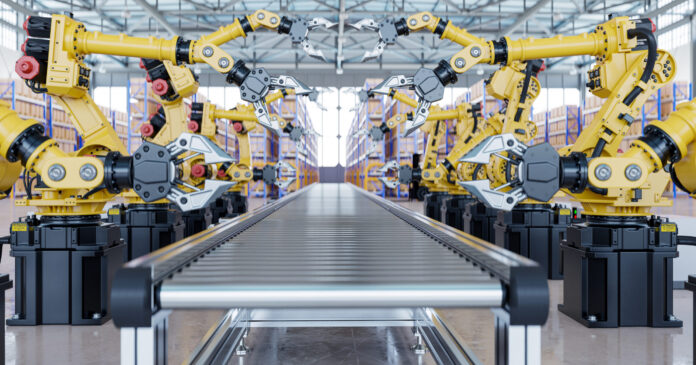In the evolving digital landscape, the distinction between artificial intelligence (AI) and automation is increasingly shaping how organizations operate, innovate, and grow. While both concepts are often used interchangeably, it is vital to understand their differences and the distinct strategic value each brings. More importantly, Sri Lankan businesses must recognize how the interplay between automation and AI is not just transforming industries globally but also opening a path for sustainable growth, efficiency, and competitiveness in local markets.
Automation and Its Role in Business Efficiency
At its core, automation refers to the execution of repetitive or rule-based tasks with minimal or no human intervention. It is not inherently intelligent but can be incredibly efficient. For instance, in a financial setting, automation can pull data from existing databases to populate a field like ‘currency’ in a transaction record. Such automation eliminates manual data entry, reduces human error, and increases process speed. This type of basic rule-based automation is already widely used in sectors like manufacturing, logistics, and finance.
The beauty of automation lies in its ability to streamline workflows, allowing employees to focus on more complex and value-driven activities. However, automation is not always AI-powered. It relies on predefined rules and structures and performs best in predictable environments with little variability.
AI, The Intelligent Layer of Automation
Artificial Intelligence, on the other hand, brings a layer of intelligence to automation. It allows systems to not just perform tasks, but to learn, infer, and make decisions. For example, instead of simply checking a field in a database, AI can infer missing values or detect anomalies by identifying patterns in large datasets. A striking example is the use of Large Language Models (LLMs) by software developers for auto-completing code, offering
context-aware suggestions that go beyond traditional syntax checkers.
AI-based automation becomes essential in dynamic environments where rules are not always clear-cut or when decision-making must adapt to context. It is particularly useful in customer service chatbots, fraud detection, personalized marketing, and predictive maintenance. AI offers a new frontier of capabilities that traditional automation cannot achieve.
Strategic Implications for Sri Lankan Enterprises
The strategic question for Sri Lankan businesses is not whether to adopt automation or AI, but how to integrate both into their operations in a way that aligns with their industry, scale, and growth aspirations. The first step is to assess which functions in the organization can benefit from automation. Routine, time-consuming processes in HR, finance, procurement, or inventory can be automated using existing tools.
Once the basic layers of automation are in place, AI can be introduced to elevate strategic decision-making. For instance, retail companies can use AI to analyze purchasing behavior and recommend stock levels. Banks and fintechs can use AI to detect fraudulent transactions. In the logistics sector, AI can optimize delivery routes in real time based on traffic and weather data.
For small and medium enterprises (SMEs) in Sri Lanka, cloud-based AI services now provide affordable access to technologies that were once the domain of large corporations. These platforms offer AI-powered tools for customer engagement, demand forecasting, marketing automation, and even content generation. Adopting such tools can level the playing field and allow Sri Lankan startups to scale faster with fewer resources.
The Future of Work and Skills Development
As automation and AI reshape the way work is done, there will be a parallel need to rethink skills development. Workers will need to transition from routine task execution to roles that require oversight, creativity, emotional intelligence, and strategic thinking. Upskilling in data literacy, prompt engineering, algorithmic thinking, and digital ethics will become crucial.
Education providers and government agencies in Sri Lanka must act now to bridge the skills gap. Curricula must include AI literacy and practical training in digital tools. Industry partnerships can help create tailored training programs that meet real business needs.
While the potential benefits are immense, businesses must also be aware of the risks. Over- reliance on automation can reduce human oversight and lead to systemic errors. Poorly trained AI models can replicate and amplify bias. Furthermore, the displacement of routine jobs could have socioeconomic impacts if not properly managed.
Ethical AI practices, transparent algorithms, and inclusive workforce planning should be integral to any digital transformation agenda. Businesses must also consider data governance, privacy, and accountability as part of their operational strategies.
A Call to Action for Sri Lankan Business Leaders
As global markets accelerate toward digital transformation, Sri Lankan companies must not lag behind. Whether in manufacturing, banking, tourism, or agriculture, the potential for AI and automation to drive growth is vast. But this transformation will not happen by default. It requires deliberate leadership, investment, and a willingness to experiment.
By embracing automation as a foundational efficiency tool and layering AI to enhance adaptability and intelligence, local businesses can become more competitive in regional and global markets. The future belongs to those who can combine technology with vision, efficiency with ethics, and innovation with inclusivity.
The time to act is now. AI and automation are not merely trends, in fact, they are strategic imperatives for the businesses that aim to thrive in a digital and interconnected world.




